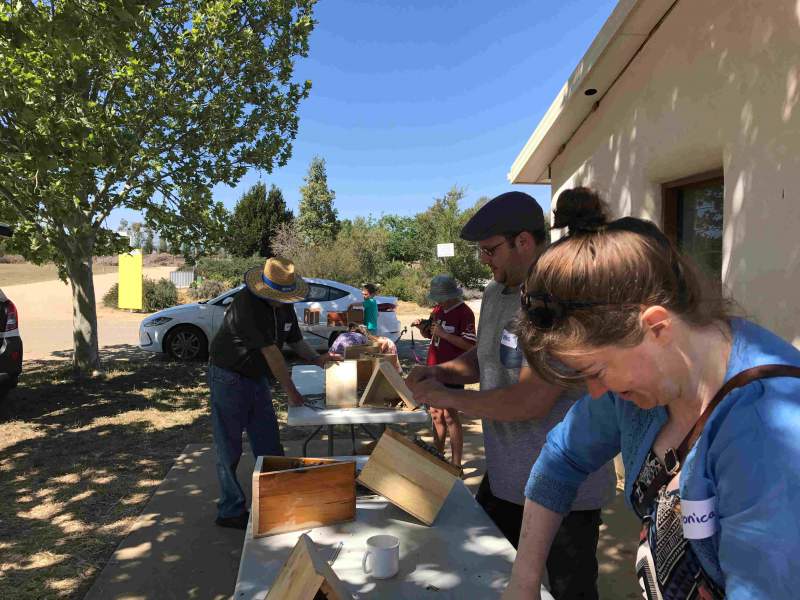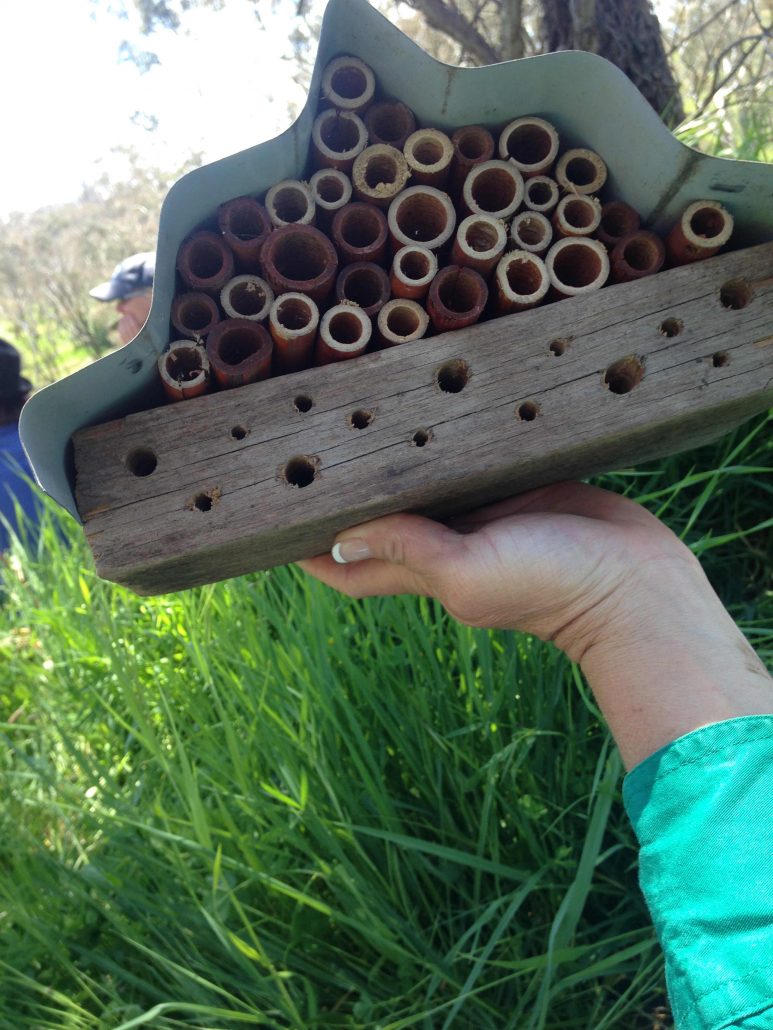The importance of marking pollinators
November 12 to 19 marks Australian Pollinator week, which acknowledges our important and unique insect pollinators. To raise awareness of the essential role of pollinators in our environment and what you can do to support their needs, Watershed Landcare hosted a Native Bee Motel workshop.
Presenter Liz Davis, Central Tablelands LLS Regional Landcare Facilitator, guided participants through the building of their own bee motel to take home, as well as highlighting the function of native pollinators to ecosystem services and our environment.
Eighteen participants, including 5 children, attended the 2 hour workshop held at the Australian Rural Education Centre (AREC) last Sunday.
“It’s great to see children getting involved and learning about the important role native pollinators make to our plants.” said Claudia Wythes, Watershed Landcare Coordinator.
“It’s such an easy thing for anyone to make and put in their back yard to provide a home for the native bees.” she continued.
The Lucknow Men’s Shed made the boxes for the motels for a series of workshops held across the Central West as part of National Pollinator week activities. Workshop participants used common materials such as dock, carrot weed stems, hemlock and old thistle to fill the boxes and provide lots of nooks and crannies for the native bees to nest in.
“Anything that has a hollow core makes a great home for native bees, it’s just a matter of using your imagination and being creative. Such a small thing makes a big difference to the population of native bees.” said Ms Wythes.

This event is supported by Watershed Landcare and is a part of the NSW Government’s Local Landcare Coordinators Initiative, supported through the partnership of Local Land Services and Landcare NSW.
Missed out on the workshop? It’s not too late for you to get involved in National Pollinator week.
Despite there being around 2,000 native bee species, as well as a couple of thousand butterfly, wasp, fly, moth, beetle, thrips and ant species, some of which are documented pollinators, very little is known about their ecology, where they are found or what plants they pollinate.
By simply watching any flowering plant for just ten minutes you can help to build a picture of wild pollinators in your local environment and help to build a database on wild pollinator activity.
To contribute to this citizen Science project visit: wildpollinatorcount.com.

